US concerned. How Israel went through six months of war and whether Iran will dare to attack
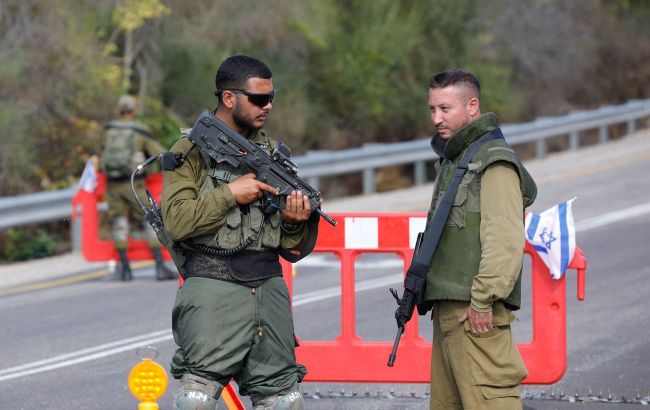 Photo: The Israel Defense Forces have been at war with Hamas for six months (Getty Images)
Photo: The Israel Defense Forces have been at war with Hamas for six months (Getty Images)
This Sunday, April 7, will mark six months since the Israeli Operation Swords of Iron against Hamas terrorists. It turned out that this was not enough for victory in the Gaza sector, and now perhaps the final stage is being prepared.
More details about the events in Israel and the Gaza sector, why the United States is pressing on its partner, and how the threat of an attack from Iran emerged can be found in the overview by RBC-Ukraine.
The material was prepared using such sources: Axios, Haaretz, Times of Israel, Washington Post, New York Times, Economist, and BBC.
Contents
- Six months of war: What's happening in Israel
- Objective is Rafah. Israel's plans are deepening the rift in relations with the United States
- Random strike. How the world forced engagement in humanitarian aid in Gaza
- Elimination of Iranian General and will Tehran dare to respond
Six months of war: What's happening in Israel
The war began on October 7 with an attack by Palestinian terrorists on a music festival near the border with the Gaza Strip. About 3,000 people gathered there, hundreds were killed, and many were taken hostage. The attackers also invaded Sderot, Ofakim, Netivot, and other settlements, committing atrocities against local residents.
According to official data, more than 250 people were kidnapped. Currently, 134 (alive and dead) are in Gaza, including four who have been held captive since 2014, as well as 11 foreigners. 123 people have been released or rescued, and the bodies of 33 abducted individuals are held by Hamas terrorists.
Soon after the attack, Hamas declared war on Israel. In response, the Israeli government declared a state of war for the first time since 1973 and launched Operation Swords of Iron. In total, in the six months in Israel, there have been about 15,000 deaths and 13,000 injuries or casualties. The country has not suffered such losses in 50 years since the Yom Kippur War.
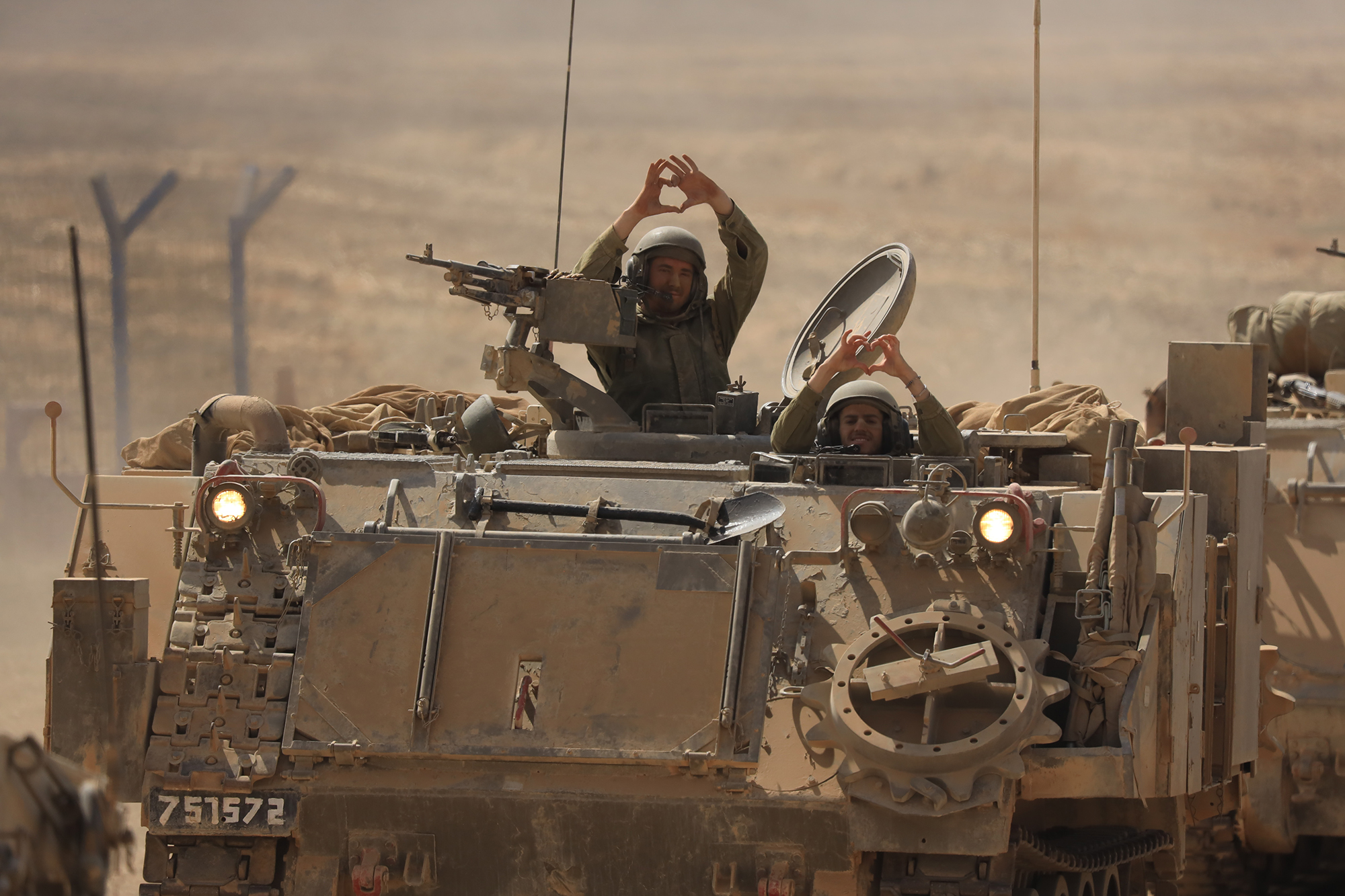
Photo: Israeli military in the Gaza sector (Getty Images)
Since the end of October, a ground operation has been underway. The Israel Defense Forces reported approximately 260 military personnel killed in the Gaza sector, near the border with Lebanon, on the West Bank of the Jordan River, and as a result of terrorist attacks within Israel. According to the IDF, at least 13,000 militants and their commanders have been eliminated. Hamas acknowledges the deaths of about 6,000 militants. Additionally, the Gaza Ministry of Health (a Hamas structure) claims 33,000 civilian fatalities. According to the UN, about 1.7 million people have fled their homes in the Gaza sector, while Israel reports the displacement of over 1 million from the northern to the southern parts of the sector.
The Israeli Air Force, Navy, and artillery are involved in targeting Gaza. The IDF also regularly attacks targets in southern Lebanon and Syrian territory.
Last week, the UN Security Council adopted a resolution calling for an immediate ceasefire in the Gaza sector. The United States, as a permanent member of the Security Council, decided not to veto, which angered Israeli officials.
"This constitutes a clear departure from the consistent U.S. position in the Security Council since the beginning of the war. Today's resolution gives Hamas hope that international pressure will force Israel to accept a ceasefire without the release of our hostages, thus harming both the war effort and the effort to release the hostages," said a statement from the office of Prime Minister Benjamin Netanyahu.
Later, he stated that the resolution had emboldened Hamas and disrupted negotiations regarding the hostages. He confirmed that Israel would not comply with the demands of terrorists and would continue to act until all hostages were released, Hamas's military potential was destroyed, and assurances were made that Gaza would never again pose a threat. In response, Hamas stated that it would not change its proposal, which includes a full withdrawal of troops from the Gaza sector and the exchange of hostages for Palestinian prisoners.
Netanyahu also canceled a delegation's visit to Washington. This decision underscored the growing tension in relations between the two countries, especially against the backdrop of preparations for the next stage of the war against Hamas - an invasion of Rafah in southern Gaza, which was planned to be discussed with US officials.
Despite the pause in negotiations with Hamas, they are not entirely concluded. In the coming days, negotiations will take place in Cairo, Egypt. As Axios reports, CIA Director William Burns and Mossad chief David Barnea will travel there to meet with the head of Egyptian intelligence and the Prime Minister of Qatar.
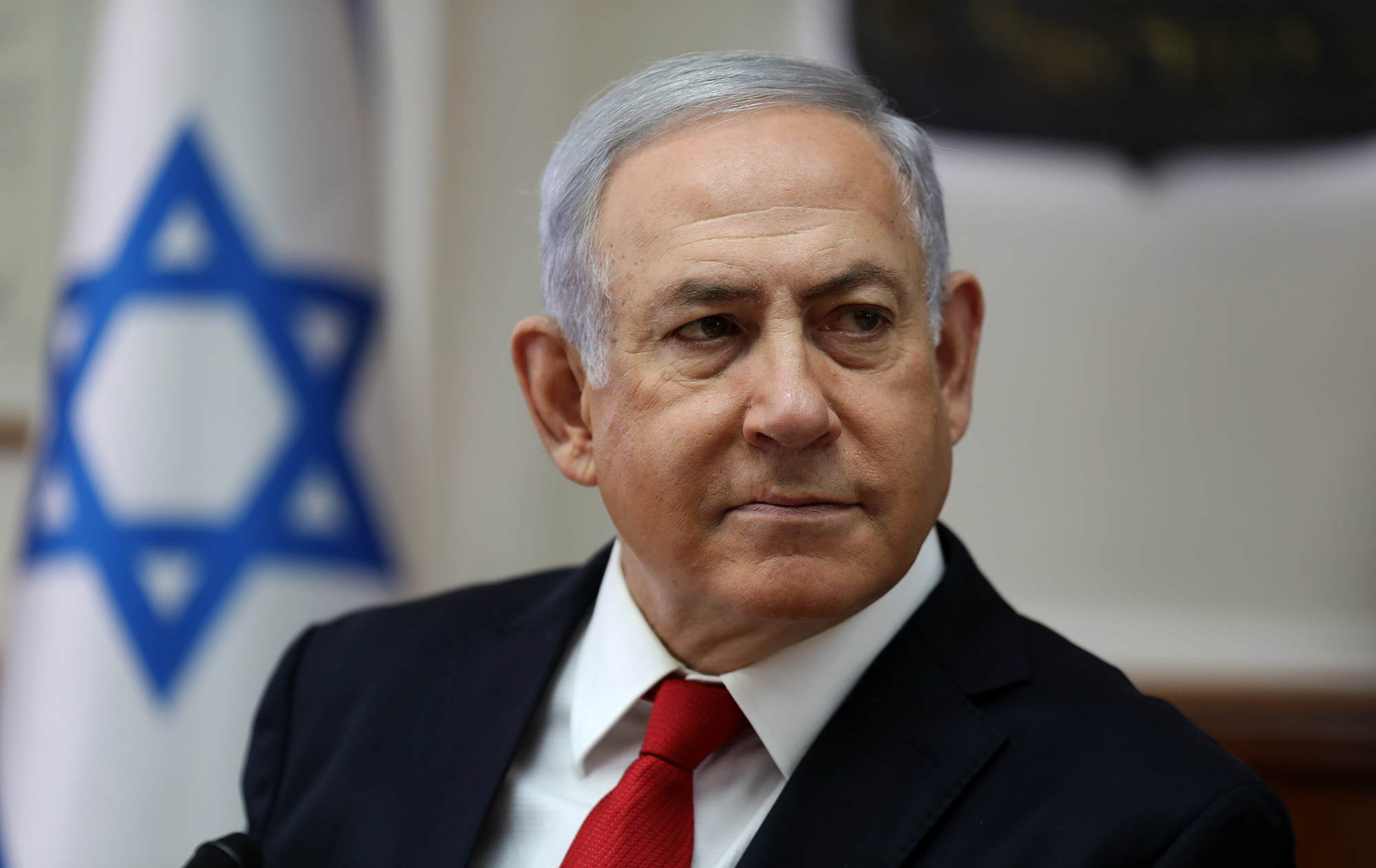
Photo: Benjamin Netanyahu criticized the UN Security Council resolution on ceasefire in Gaza, as it is not tied to the immediate release of hostages (Getty Images)
American President Joe Biden insists on an immediate ceasefire as part of an agreement to release hostages. However, Haaretz somewhat dampens hopes that this could happen quickly. The source, citing a participant in the negotiations, notes that Netanyahu supposedly "does not prioritize the deal."
The Israeli government is facing other challenges. At the end of March, the Supreme Court announced that there were no longer grounds to postpone the conscription of Haredim (representatives of ultra-Orthodox Jewish communities) into the army. Netanyahu sought to reach an agreement on a new bill, but the document has not yet been formulated.
It is worth noting that debates about the service of Orthodox Jews in the IDF have been ongoing since the establishment of Israel. The conflict intensified during the war with Hamas, with many arguing that the Haredim are not equally "bearing the burden of defending the country." In February 2024, the Ministry of Defense submitted bills to extend service terms due to a shortage of personnel, reigniting discussions about Haredi recruitment. Ultra-religious parties (Shas, United Torah Judaism, and others) have marked this issue as a red line and threatened to leave the coalition, which would trigger another electoral process for the Knesset.
Due to the failure to reach an agreement regarding the hostages, tens of thousands of people took to the streets in the largest protests since the beginning of the war on March 30. Participants across the country waved flags, lit bonfires, and blocked roads, while the police used water cannons and detained demonstrators. This week, four days of protests were planned. People demand the immediate release of the hostages, Netanyahu's resignation, and new elections.
Objective is Rafah. Israel's plans are deepening the rift in relations with the United States
Israel claims that the final battle of the war in the Gaza sector will take place in the southern city of Rafah on the border with Egypt. Currently, it is home to 1.4 million people, including refugees from other parts of the enclave. According to the IDF, it is where the last surviving battalions of Hamas and over 100 hostages are located.
Benjamin Netanyahu believes that victory is impossible without an invasion of Rafah.
Not taking Rafah would be like the Allied forces in World War II “leaving a part of the Nazi army in place and saying, well, don’t go there … like leaving a quarter of the German army in place and don’t go into Berlin,” he told a delegation from the US Congress visiting.
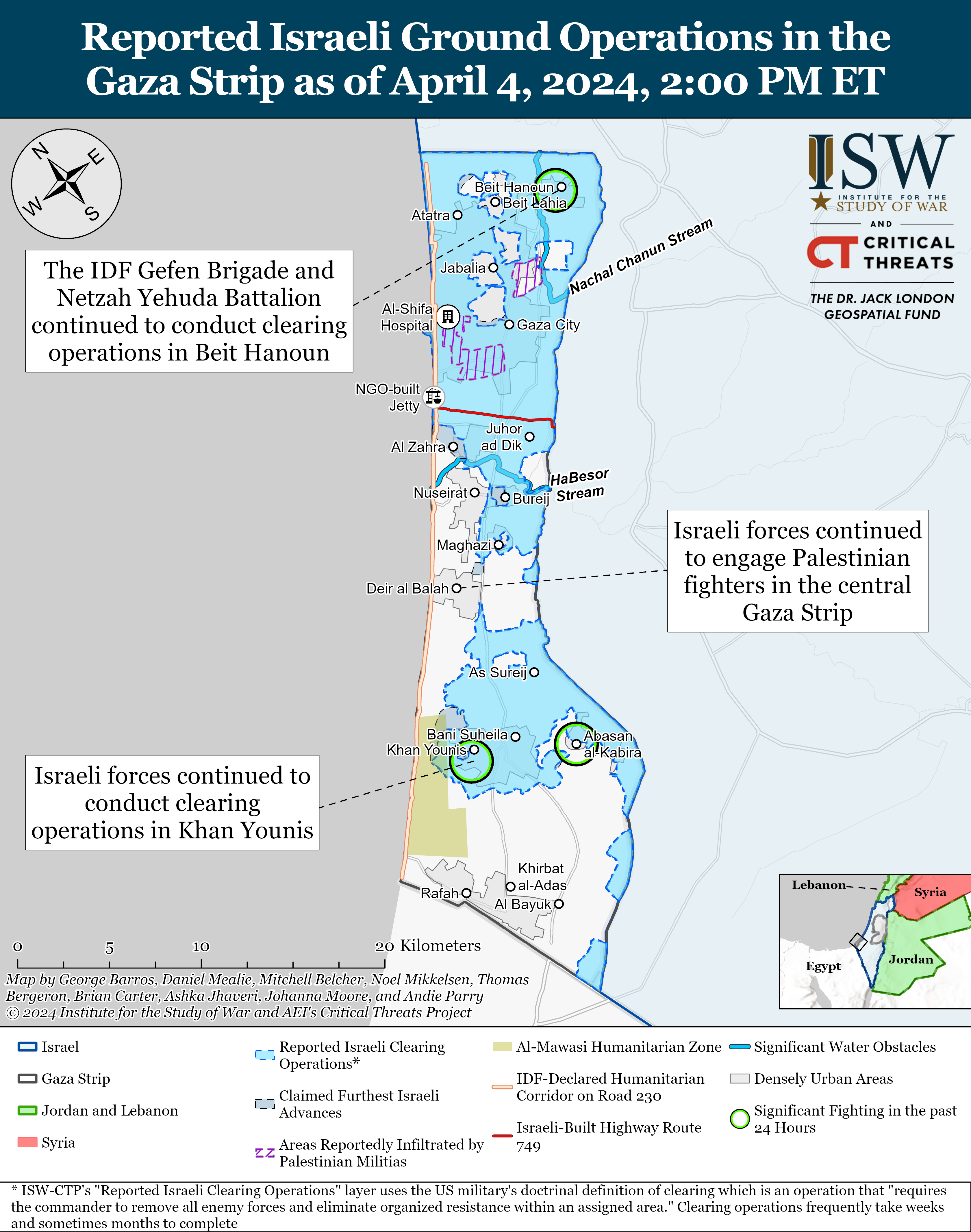
Photo: The Israel Defense Forces have cleared more than half of the Gaza sector (understandingwar.org)
The Biden administration is concerned about the plans and speaks of "worst-case scenarios." On Monday, the White House stated that there is a better alternative to a ground operation, but the final decision lies with Israel, The Washington Post reports. Details are not disclosed, with US officials saying they will provide general recommendations. Israeli military experts expect the IDF, which demanded that Gaza residents move south in the early stages of the war, to now demand an evacuation of Rafah. Then, troops will enter to clear the city, eliminate militants, and rescue hostages.
The Israel Defense Forces have dismantled 20 out of 24 Hamas battalions in the Gaza sector, with the last four located in Rafah. According to the IDF's assessment, the city is the hub of a network of tunnels, with thousands of militants and terrorist command centers above and below ground, including Yahya Sinwar, the organizer of the October 7 attack.
Washington is concerned about the fate of civilians. The Biden administration calls on Israel to consider the possibility of "surgical precision strikes." However, these are relative terms, as two weeks of pinpoint battles around Al-Shifa Hospital in Gaza left the medical complex in ruins. Netanyahu assured that over a million Palestinians would be evacuated from Rafah, provided with assistance, and only after that would the IDF attack Hamas.
"This is the right thing both operationally and internationally. This will take time but it will be done," he said, adding that he is willing to listen to US proposals to limit casualties during the operation.
The upcoming offensive is described as one of the most problematic, dangerous, and necessary throughout the six-month war. Defense Minister Yoav Galant acknowledges that dismantling Hamas as a military organization may not eliminate its terrorist potential. US officials express concerns about "a premature operation that could endanger millions of lives" and new destabilization due to the flow of Palestinians into Egypt, according to WP.
Vice President Kamala Harris stated that an assault on Rafah would be a "grave mistake" and added that if it begins, negative consequences for relations with Israel are not ruled out.
Random strike. How the world forced engagement in humanitarian aid in Gaza
An incident at the beginning of the week elevated discussions on the humanitarian situation in Gaza to a new level. On the evening of April 1st, the Israeli army unintentionally attacked a humanitarian convoy. As a result, seven workers from the humanitarian organization World Central Kitchen were killed.
It was reported that a convoy of three vehicles came under fire after leaving the warehouse in Deir al-Balah (central part of the sector). According to WCK, the IDF was informed of the movement, and several hours before the tragic incident, they unloaded over 100 tons of food products.
It is unknown what is the exact ammunition that struck the vehicle, and whether they were attacked from the ground, aircraft, or drone. Among the deceased are three British citizens. Foreign Minister David Cameron emphasized the need to protect personnel and called on Israel to conduct an investigation and provide explanations. It is known that since October 2023, at least 196 representatives of humanitarian missions have been killed in Gaza and the West Bank.
Netanyahu, evidently, took responsibility for the unintentional attack on their part.
"This happens in war. We are conducting a thorough inquiry and are in contact with the governments. We will do everything to prevent a recurrence," he said.
As reported by the NYT, a preliminary investigation confirms the strike from the Israeli side. Israeli Defense Forces representative Daniel Haggai has already stated that they have handed it over to a separate "independent, professional, and expert" body that will clarify all the circumstances.
President Joe Biden made a strong statement. According to him, Israel allegedly did not do enough to protect the civilian population and volunteers trying to provide necessary assistance. He also emphasized that he would pressure Israel, particularly for an immediate ceasefire. Many media outlets have labeled these remarks as the harshest criticism from the White House since the start of the war against Hamas.
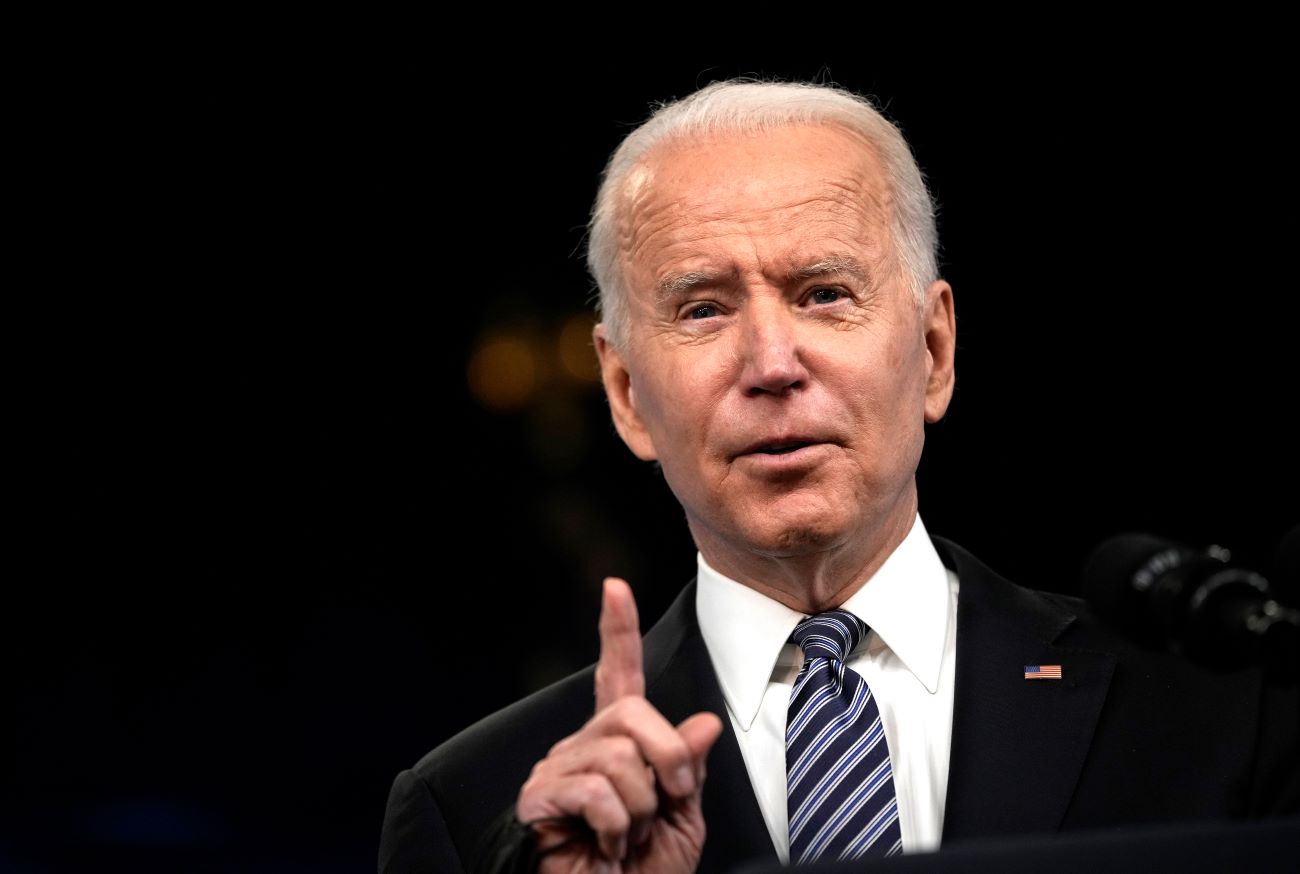
Photo: Joe Biden harshly criticized Israel this week over the attack on the humanitarian convoy (Getty Images)
And Secretary of State Anthony Blinken threatens a review of the partnership policy. Earlier, he said that the US administration is losing patience "against the backdrop of enormous humanitarian casualties", and the attack on the World Central Kitchen convoy was not the first but should be the last.
It is worth noting that Washington is a strategic partner, and this is one of the factors that allowed Israel to survive as a state surrounded by enemies. Israel is the largest recipient of US foreign aid. By February 2022, they had provided $150 billion in bilateral assistance. According to the memorandum, Washington is obligated to provide $3.8 billion annually until 2029. In March, the State Department sanctioned the transfer of 25 F-35 fighter jets and thousands of bombs. Another approximately $14 billion was planned to be allocated as part of the currently blocked package, which also includes aid to Ukraine and Taiwan.
The threat seems to have had an impact. The Security Cabinet approved the opening of the Erez crossing between Israel and the northern part of the Gaza Strip for the first time since October 7th. In addition, the port in Ashdod will operate for humanitarian purposes. Today it became known about plans to increase the capacity of the Kerem Shalom crossing in the southern part of the sector.
Increasing aid will help prevent a humanitarian crisis. And this is necessary to ensure the continuation of hostilities and the achievement of war goals, stated a representative of the Israeli government.
Elimination of Iranian General and will Tehran dare to respond
On Monday, a probable missile strike by Israel destroyed a building on the territory of the Iranian embassy in Damascus (Syria). As a result, according to various reports, between 7 to 13 people were killed, including General Mohammad Reza Zahedi, the commander of the Quds Force (the expeditionary wing of the Islamic Revolutionary Guard Corps).
Israeli officials did not claim responsibility for the attack. However, privately, they leave no doubt about their role. The purpose of such attacks could be retaliation for supporting enemies - Hamas and Lebanese Hezbollah. And also direct confrontation with Tehran. Israelis acknowledge that this could provoke retaliation but believe that Iran is not inclined to risk and will back down, as reported by The Economist.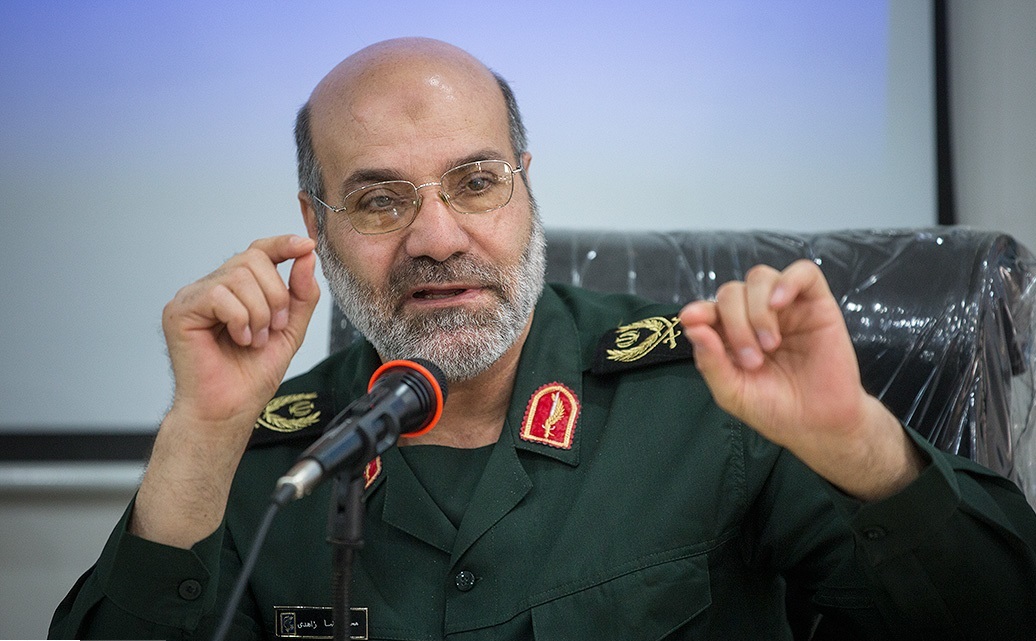
Photo: Israel appears to have eliminated Iranian General Mohammad Reza Zahedi and is now preparing to strike back (Fars Media Corporation)
As reported by Iranian state TV, a decision on a "necessary response" was adopted at a meeting of the Supreme National Security Council chaired by President Ebrahim Raisi. According to Supreme Leader Ayatollah Ali Khamenei, Tehran intends to make the perpetrators "regret this crime".
The day before, a series of Middle Eastern media outlets reported that the US CIA had warned of an Iranian strike within 48 hours. It is anticipated that the attack may be a combination of drone and missile strikes targeting strategic assets within Israel. There are concerns that this could escalate into a new major war in the region.
Commenting on this information, Netanyahu assured that his country would be able to defend itself and would act on a simple principle: "Whoever harms us or plans to harm us, we will harm them."
It has been reported that due to the risks of attacks on Israeli territory, GPS signals have begun to be blocked to "blind" Iranian drones and missiles. Additionally, the IDF has announced an early end to leaves for all military personnel.
Authorities presumably consider the threat of an attack on Friday to be high. Today marks the Day of Solidarity with Palestinians (Al-Quds Day), and mass anti-Israeli rallies are taking place in Iran. Israeli media reports that some embassies have been put on high alert or already evacuated.
However, options for retaliation against Iran may be limited in scope, according to experts cited by the BBC.
"Iran is not capable of a big confrontation with Israel given its military capabilities and economic and political situation. But it will have to come up with a response for domestic consumption and to protect its reputation among its regional allies," noted German-Iranian analyst Ali Sadrzadeh.
Fawaz Gerges, a professor of international relations at the London School of Economics, doubts that Iran will deliver a direct blow, although they were indeed humiliated, and the attack on the embassy in Damascus "broke their nose." Instead, Tehran is likely to exhibit strategic patience, focusing on nuclear bomb development.
"(Iran is) accumulating power, it's enriching uranium, it's making progress. And the big prize for Iran is not really to send 50 ballistic missiles and kill 100 Israelis, but to establish strategic deterrence, not only against the Israelis, but even against the US state," emphasized the expert.

